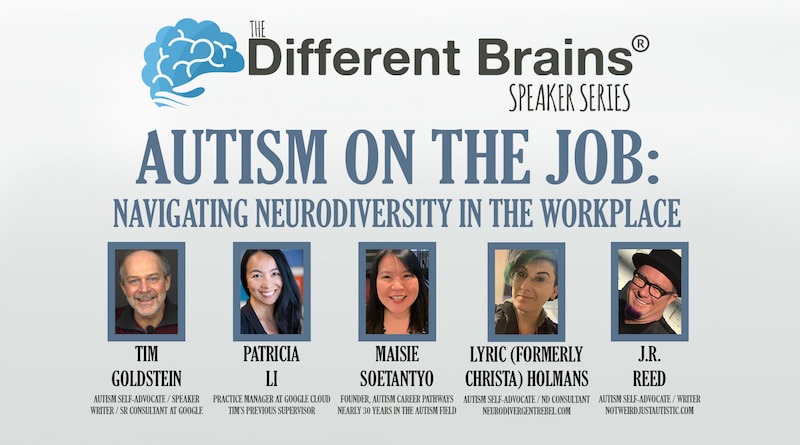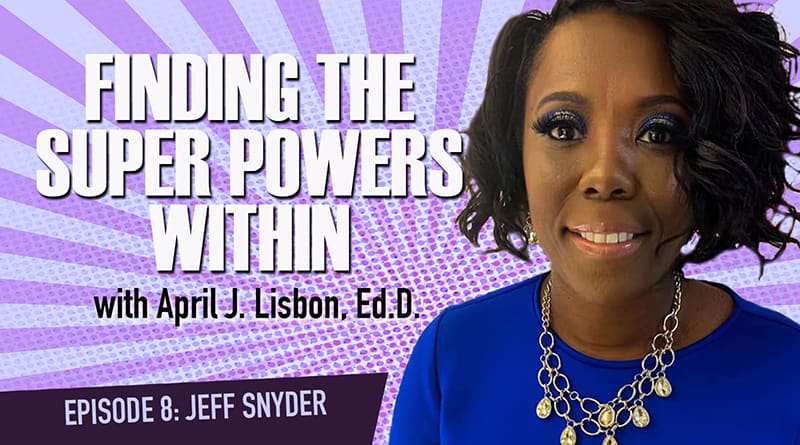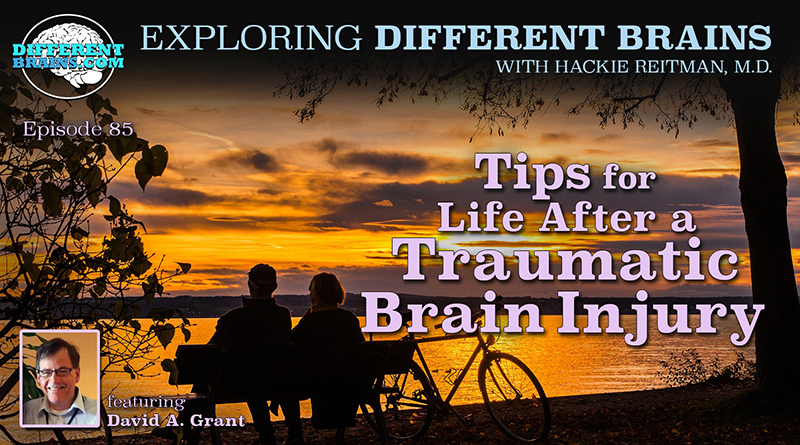ADHD in the ER, with Ali Idriss | EDB 316

Self-advocate & EMT Ali Idriss discusses how his ADHD traits help him navigate his work in emergency rooms, and offers advice for dealing with a trip to the ER.
Ali Idriss is a Different Brains team member and ADHD self-advocate. He aspires to share his journey and help others with the tools that have allowed him to overcome many of the challenges along the way, as he co-hosts the webisode series ADHD Power Tools. Ali has also completed his bachelor’s in Biological Sciences at Florida Atlantic University and is currently completing his second bachelor’s in Neuroscience and Behavior as he is conducting both clinical and public health research. He is also an Emergency Room Tech/EMT aspiring to become a Physician.
For more about Ali’s work: differentbrains.org/author/ali-idriss
And look for Ali’s show ADHD Power Tools here.
AUDIO PODCAST VERSION:
Or look for us on your favorite podcast provider:
iTunes | Stitcher | SoundCloud
FULL TRANSCRIPTION
Note: the following transcription was automatically generated. Some imperfections may exist.
HACKIE REITMAN, M.D. (HR):
Hi, I’m Dr. Hackie Reitman. Welcome to another episode of Exploring Different Brains. Today, I’m excited because we have our friend, or a teammate, a great self advocate for ADHD himself, Ali Idriss, who’s doing so many things in his going places and is helping a lot of people. And he co hosts Power Tools for ADHD right here at Different Brains. Ali, welcome.
ALI IDRISS (AI):
Thank you, Hackie. I’m excited to be here. Thank you.
HR:
Now, why don’t you introduce yourself to our audience a little bit better than I did?
AI:
Yeah, sounds good. So I’m gonna lead pre med student here at FAU. Currently applying to medical school, as I aspire to be a physician. I’m also working here at FAU’s medical school as a research lab tech in neuropharmacology. I also am an EMT in the emergency room here at West Boca Medical Center. And the reason I’m on this with Hackie today is because I’ve been with Different Brains for almost four years now, which is crazy. On the social media team. I’ve been on the research team where we’ve done a really exciting stuff, research field, pushing awareness and acceptance for neurodiversity within a research and ADHD power tools over 100 episodes, co host alongside Brooke Schnittman. So yeah.
HR:
100 episodes, you don’t look old enough. Tell us a bit about how you got your ADHD diagnosis.
AI:
Yeah, so I was seven years old. And I could never sit still in class, I was always sent to the principal’s office. And my my parents, teachers, they thought why not get tested. So I indeed got diagnosed for ADHD as seven years of age, I ended up doing therapy for almost a year. And at that age, I would the medicated me. And for seven years, I was medicated from ages seven to 14 only on school days. And I mean, ever since then, I’ve been passionate and learning about ADHD, learning about how my brain works to be productive to achieve my goals. Ever since that diagnosis,
HR:
tell us how ADHD is played a role, both good and bad. If there is any bad in your education,
AI:
I think when it comes to ADHD and education, there definitely are negatives. But the catch is that negative can be turned to a positive and I think even a double positive and if anything, once you you know collect those tools. In the educational setting, ADHD has allowed me to take risks, be outgoing with my friends and class to develop relationships with my friends in class. We collaborated on this added accountability. Number one is huge a key for someone with ADHD like myself, they also immersed me in my curriculum, and became surrounded by what I was learning something that’s also very key for myself. And it kept me engaged. You know, someone with ADHD like myself needs to be engaged hands on with the curriculum, we’re learning in educational setting. So I was able to teach my classmates a big big time learning method for myself because not only learning the content but being being able to teach it that’s when I really that’s when did you know the material really sticks for me? So I think ADHD helped me thrive in that setting that group setting allowed me to to take those risks.
HR:
And you know, some people like with anything, everything’s a spectrum have different symptoms. Let’s start with: what does ADHD stand for?
AI:
Attention Deficit Hyperactive Disorder, and it has both that deficit and disorder, those two words right there, which I think it’s the total opposite. It’s not really at least from you know, yeah.
HR:
And I have not noticed you to be hyperactive.
AI:
I was when I was a little kid. I’ll tell you that.
HR:
So there is a there’s been a change in you as you have grown. But you are ADHD all the way. Tell us a bit about your work as an EMT, what is the EMT stand for? What do you do tell us about your work.
AI:
So EMT stands for emergency medical technician. As a pre med student. As all pre med students, we need clinical hours to apply to medical school. Medical Schools love to see that you’ve worked in the clinical setting. They love to see that you’ve worked alongside patients. The options for me at the time would describe a doctor to work as a medical assistant in the clinic. And there was other options like EMT He, I learned about how hands on it was and emulated the restaurant setting. At the time I was a server, and I thrived in this restaurant setting. It was fast paced, it was chaotic. It was like the synchronized chaos. They really thrived in new faces all the time, very hands on. And I think the EMT is really what emulated that the most it was the environment I want to work in. I started as an EMT, on the road, doing inter facility transports with America and medical response. I did that for a year and a half. And ever since I think it’s also been almost two years, I’ve been in the ER, alongside nurses and doctors, I switched over to the emergency room to see that post transport care and experience that longitudinal care with patients.
HR:
So you run toward stress. And having ADHD how do you manage stress?
AI:
How do I manage the stress in the ER or in general?
HR:
Both.
AI:
Okay, so. So the ER is chaos, right? There’s so much going on it many of us say there’s kind of a requirement to work in the ER, you have to have ADHD, they’re able to work in their it, people say that. So I personally thrive in that setting. As I said, I’m able to fall into that hyper focus. During those emergency situations, I’m able to mute everything out distractions, at least I’m not going to mute the doctors, nurses and patient out, I gotta be in touch with that. But it helps me stay hyper focused on what’s going on. The movement is huge as well, a setting where I’m able to move during cognitive tasks helps me stay engaged. And even the learning style of EMT school half of it is you know, the books and the exams, but the other half is training, clinical setting. It’s these rounds that that’s how I am able to learn. And stress outside of the ER, the first thing that pops in my mind is working out. Physical activity is huge. For me, that’s very high on my priority list. Whether it’s cardio, weightlifting, something to relieve that stress, I tend to do it towards the end of the day, after I’ve gotten everything out of the way. I also do yoga weekly, I think yoga is huge. I am able to focus on my mobility, my stability, my flexibility, and most importantly, the breathing. I mean yoga is those three things, it’s you know, very hard moves and such. But the breathing is so important being in touch with my breathing and becomes a meditative experience. And it’s kind of that the stress or I can disconnect and just let you know, be one with my thought.
HR:
From your perspective, what should someone with ADHD, be aware of when they enter a high pressure job?
AI:
I think being aware is the first step. That’s so important. Being aware, and I think it’s going to take time to find your rhythm. I think it will take time there’s a learning curve. But to find that rhythm that system that tiempo, you’re gonna have to know your environment. Know how your environment works and know how your coworkers work. And once that learning curve passes, I think the high stress environment is something that you can thrive in with ADHD. So I think it’s important to have patience it’s important to have a lot of questions and focus on your personal life. Don’t push away your personal life, don’t push away your health, your sleep, your social relationships, everything outside of work, I think is super important. Make those your priorities.
HR:
You know, and as a corollary to that, the Ali Idriss method of taking a suppose it negative and turning it into a positive.
AI:
Yes, yes.
HR:
Has working in the emergency room changed your thoughts on neurodiversity in general. And if so how?
AI:
100%. In the er you work with so many patients from so many different cultural backgrounds, histories, languages and neurodiversities and I’m so thankful to be — I was so thankful to be part of Different Brains before becoming an EMT because I was able to translate what I learned at Different Brains into my practice into my medical practice. I developed very close and deep relationships with people at Different Brains and I was able to empathize with my patients. I was able to understand the nuances of each situation a patient was in because of all the knowledge I gained through different brands. I’ve been definitely a better provider of care because of you know what I’ve learned through Different Brains but the weight all of this has changed my perspective is it’s really emboldened my hunger to spread awareness and acceptance for neurodiversity. I really appreciate working with populations from this demographic, and what it does for our community. You see these patients in their most vulnerable moments. I think being there for them putting a smile on their face is changed my perspective so much.
HR:
Well, that’s a great segue into my next question, which is, what advice would you have for their neurodivergent individual who may be prone to overload, to prepare themselves for a visit as a patient?
AI:
So yeah, there are many tools, I think it’s important to know what you’re walking into. You’re walking into, you know, a world of chaos. There’s lots of beeping noises and lights and screaming babies crying. There’s a lot going on nurses coming in and out in EMTs. Like myself coming in and out doctors left and right. I think it’s important to come prepared, say bring something that’ll keep you distracted inside, whether it’s a video game or your phone, or just a toy, some some, some stress ball or something, even a blanket because you might want to stay warm in there. I’ve seen many times in the ER people bring in headphones to keep quiet, you know, keep everything quiet from all the chaos going around. And I think letting your provider know letting the EMT then there says doctor know what’s going on the fact that they’re aware and they understand is so important. That should be the first thing you should let them know.
HR:
Boy you brought back so many good memories for me of the uncontrolled chaos of the Boston City Hospital emergency room when I was working there in my orthopaedic residency. Wow, what it was, it was it was going on you do a great description of the emergency room. How can people learn more about you?
AI:
DifferentBrains.org – ADHD Power Tools. With Brooke Schnittman. We have over 100 episodes. I think that’s the go to and it’s been over over a three year long period. So you can see so much in our tools growth and you know, topics we’ve discussed accumulated along the way.
HR:
What is one piece of advice you would have for someone out there with ADHD who is unsure and not confident in their ability to pursue their career goals?
AI:
I think you should understand your ADHD. Read about it, watch about it, understand as much as you can. And don’t be scared to take risks. Because many people out there need our abilities. They need our powers. I think that’s that’s what I would say is I think embrace it, embrace it to the fullest.
HR:
Well, Ali, it’s been terrific. Terrific having you here. I’ve learned a lot today and I’m sure our audience has as well. Want to wish you all the luck. You’re going to be a great great physician and make you happy. We gotta get we got to get you on to that next phase because you’re meant for you’re born for it.
AI:
It’s coming soon.
HR:
Please keep up all the great work and we do appreciate your volunteerism and staying involved on the team here at Different Brains. Alia Thank you very much.
AI:
Thank you so much. Thank you for having me on.




